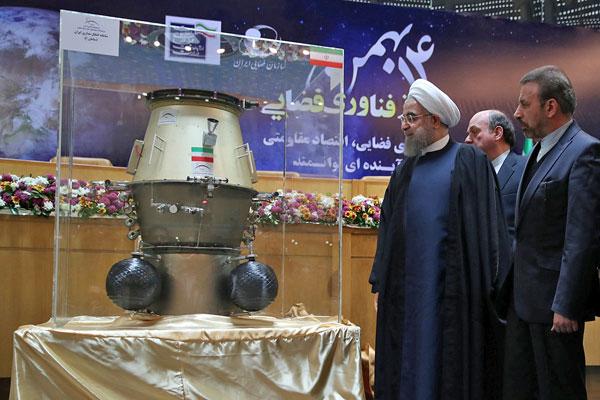You are here
Rouhani expands Iran’s missile programme despite US sanctions threat
By Reuters - Dec 31,2015 - Last updated at Dec 31,2015
DUBAI — President Hassan Rouhani ordered his defence minister on Thursday to expand Iran's missile programme, in defiance of a US threat to impose sanctions over a ballistic missile test Iran carried out in October.
Under a landmark agreement it clinched with world powers in July, Iran is scaling back a nuclear programme that the West feared was aimed at acquiring atomic weapons, in return for an easing of international sanctions. It hopes to see these lifted early in the new year.
But sources familiar with the situation said on Wednesday that Washington is preparing new sanctions against international companies and individuals over Iran's testing of a medium-range Emad rocket on October 10.
The escalating dispute centres on the types of missile that the Islamic Republic is allowed to develop and whether they are capable of, or designed to, carry nuclear warheads.
"As the US government is clearly still pursuing its hostile policies and illegal meddling ... the armed forces need to quickly and significantly increase their missile capability," Rouhani wrote in a letter to Defence Minister Hossein Dehghan, published by the state news agency, IRNA.
“The defence ministry, with the support of the armed forces, is tasked with putting in place new programmes by all available means to increase the country’s missile capability,” he added.
US officials have said the treasury department retains a right under the nuclear deal to blacklist Iranian entities suspected of involvement in missile development.
Iranian officials have said the supreme leader, Ayatollah Ali Khamenei, would view such penalties as violating the nuclear accord. Earlier on Thursday, Iranian foreign ministry spokesman Hossein Jaber Ansari condemned the US plans to impose additional sanctions as “arbitrary and illegal”.
A team of UN sanctions monitors said in a confidential report seen by Reuters on December 15 that the Emad rocket tested by Iran was a ballistic missile capable of delivering a nuclear warhead, making it a violation of a UN Security Council resolution.
Ballistic missiles follow a high, arching trajectory before falling under gravity to their target, unlike low-flying cruise missiles. Ballistic tests by Iran are banned under Security Council Resolution 1929, which dates from 2010 and remains valid until the July nuclear deal between Iran and world powers goes into effect.
Once it does, Iran will still be “called upon” not to undertake any ballistic missiles work designed to deliver nuclear weapons for a period of up to eight years, according to a Security Council resolution adopted in July, right after the nuclear deal.
Iran says the resolution would ban only missiles “designed” to carry a nuclear warhead, not “capable of” carrying one, so it would not affect its military programme as Tehran does not pursues nuclear weapons. Iran has called Emad a conventional missile.
In his letter to Dehghan, Rouhani said Iran’s missile programme had nothing to do with its nuclear programme and that the missiles have “not been designed to carry nuclear warheads”.
The Iranian missiles under development boast much improved accuracy over the current generation, which experts say is likely to improve their effectiveness with conventional warheads.
Related Articles
DUBAI — Iran's defence minister said on Wednesday it had tested a new missile but this did not breach the Islamic republic's nuclear accord
DUBAI — Iran tested a new precision-guided ballistic missile on Sunday in defiance of a United Nations ban, signalling an apparent advance i
TEHRAN — Iran launched a new long-range missile late last month, a general announced on Monday, trumpeting the accuracy of the latest such w

















